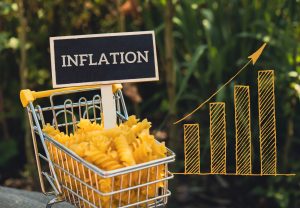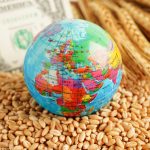Asset Management – How food security affects investment markets
 Manty Seligman
Manty Seligman
Director – Asset Management
_______________________________________________________________________________________________________
South African investment markets amidst food security challenges
Investing in South African markets amidst food security challenges is a dynamic endeavor. Climate variability and socio-economic disparities can create significant fluctuations, impacting agricultural commodities and broader investment opportunities. However, within this complexity lies the potential for astute investors to navigate and uncover valuable insights. At GTC, we’re constantly identifying and reviewing these potential opportunities – also mitigating possible risk – and crafting resilient investment strategies tailored to meet our clients’ long-term success.
Financial planning often requires traversing diverse and complex landscapes. It is not always an exact science. South African investment markets are no exception, with the intricacies of food security presenting unique challenges that demand strategic navigation.
 Ensuring food security stands as a distinct challenge in South Africa, influenced by factors like climate variability, land reform, and socioeconomic disparities. Although the agricultural sector contributes approximately 2.5% to the GDP, it remains vulnerable to external shocks such as droughts and global market fluctuations.
Ensuring food security stands as a distinct challenge in South Africa, influenced by factors like climate variability, land reform, and socioeconomic disparities. Although the agricultural sector contributes approximately 2.5% to the GDP, it remains vulnerable to external shocks such as droughts and global market fluctuations.
So, how big an effect can it have?
Recent years have witnessed heightened volatility in agricultural commodity prices, driven by occurrences like El Niño-induced droughts and disruptions in supply chains. For instance, the severe drought experienced in South Africa during 2015-2016 led to reduced crop yields and a surge in food prices. A University of Pretoria survey showed that Southern African maize production was down by some 70% over this period. This significant event had direct implications for investment markets, with sectors like agriculture, food processing, and retail experiencing fluctuations in stock prices and investor sentiment.
Diversifying investments beyond the agricultural sector serves as a strategy to mitigate the impact of food security challenges on investment portfolios. While agricultural stocks may directly suffer from supply disruptions, investments in sectors such as technology, healthcare, and consumer goods offer diversification benefits. Moreover, exposure to international markets provides access to regions less affected by local food security issues.
Should I invest in South African stocks?
Despite short-term fluctuations experienced by all stock markets, South Africa’s investment landscape affords opportunities for long-term growth. While droughts and El Niño events may cause temporary market volatility, staying invested in line with long-term investment objectives remains crucial. Historically, markets have rebounded from such challenges, rewarding patient investors who maintain a disciplined approach to investing.
I n times of uncertainty, investors must remain resilient, maintain a diversified portfolio, and remain informed about market developments, thereby weathering short-term challenges while positioning themselves for long-term success.
n times of uncertainty, investors must remain resilient, maintain a diversified portfolio, and remain informed about market developments, thereby weathering short-term challenges while positioning themselves for long-term success.
At GTC, we navigate these complexities by closely monitoring all investment themes including food security trends, assessing their impact on key sectors, identifying opportunities, and mitigating risks.
Diversification remains a cornerstone of our investment strategy, spreading risk across various asset classes and geographic regions.
Strategy and discipline
Navigating South African investment markets amidst food security challenges requires a strategic mindset and a disciplined approach. By understanding the interplay between food security, market dynamics, and investment opportunities, investors can effectively manage risks and capitalise on growth prospects.
At GTC, we are committed to guiding our clients through these challenges, ensuring their portfolios remain resilient and well-positioned for long-term success.






